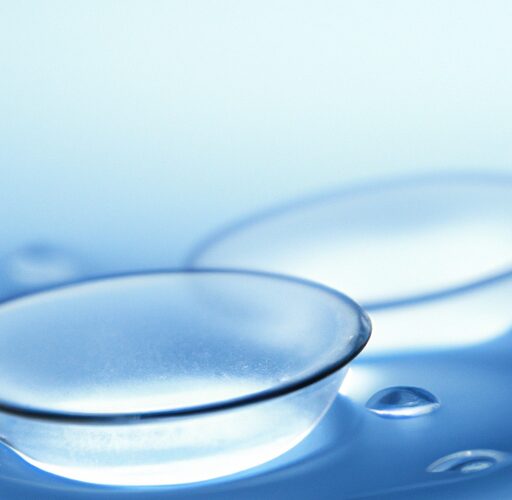Getting Your Contact Lens Prescription? Don’t Forget to Measure Your Pupil Size!
When it comes to getting fitted for contact lenses, you might think that simply knowing your prescription is enough. After all, you’ve been wearing glasses for years, so how different could it be?
Unfortunately, it’s not that simple. Unlike glasses, contact lenses need to fit perfectly over your cornea. That means taking into account not just your prescription, but also the size of your pupils. If your lenses don’t fit right, you might experience discomfort, blurry vision, or even damage to your cornea.
Why Pupil Size Matters
Depending on the lighting conditions, your pupils can expand or contract. In bright light, they’ll contract to protect your eyes from the glare. In low light, they’ll expand to let more light in. If your contact lenses aren’t the right size, they can block part of your pupils, which can cause visual distortion, glare, or difficulty seeing in low light conditions.
That’s why your eye doctor will measure your pupil size when you’re getting fitted for contact lenses. By taking this measurement, they’ll be able to ensure that your lenses are the perfect size and shape for your eyes.
How to Measure Your Pupil Size
If you’re curious about how your eye doctor measures your pupil size, it’s actually a pretty simple process. Here are the steps:
- Sit comfortably in an exam chair in a dimly-lit room.
- Your eye doctor will shine a penlight into your eyes.
- They’ll measure the size of your pupils using a ruler or other professional measuring tool.
- That’s it! The measurement should only take a few seconds.
Once your eye doctor has your pupil size, they’ll use it along with your other measurements to determine the perfect contact lens size and shape for your eyes. If you’re feeling nervous about the process, just remember that it’s quick, easy, and painless!
Speaking of Contact Lenses…
If you’re new to contact lenses, you might be wondering what all the fuss is about. Why do people prefer contact lenses over glasses?
For starters, contact lenses can offer a wider field of vision than glasses, since they move with your eye. They also don’t get fogged up or smudged, making them a great option for outdoor activities or sports. And of course, there’s the cosmetic factor – many people feel that contact lenses are more attractive or professional-looking than glasses.
That being said, contact lenses aren’t for everyone. If you have certain eye conditions, such as dry eyes or astigmatism, you might not be able to wear contacts comfortably. And even if you’re a good candidate for contact lenses, they can be more expensive and require more maintenance than glasses.
The Bottom Line
If you’re considering contact lenses, make sure to talk to your eye doctor about your options. And don’t forget – when you’re getting fitted for your lenses, measuring your pupil size is just as important as knowing your prescription. With the right contact lenses, you can enjoy clear, comfortable vision without the hassle of glasses!

